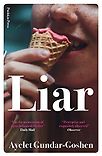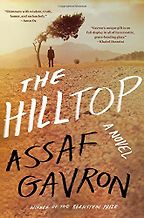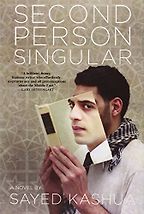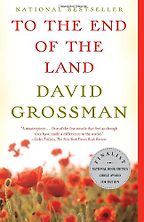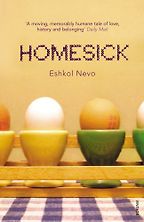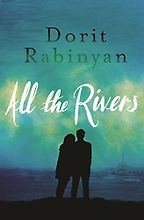Do you think Israel’s fiction must engage with her politics?
I think Israel is a very political country. We are in the middle of a huge conflict zone and we have two thousand years of history of very difficult politics. I don’t think it is possible to write anything in Israel without referring to politics, and if you were to decide to write something without referring to politics, then that in itself is a political decision. I don’t mean to say that fiction has to limit itself only to the current conflict. Writing is a political act, but it’s much wider than everyday politics: it’s a political act because it deals with morals, with people, with power and knowledge.
It goes without saying that the political situation is immensely complex. Have you found that Israeli novels engage with all sides of the debate?
Most of the writers I know are left-wing, while the majority of people in Israel vote for the right-wing Netanyahu. So there is a gap here between literature and the political map.
Where does that gap come from?
I think literature is a humanistic act. While writing a novel, you have to put yourself into the shoes of ‘the other’. Once you try to write from a different perspective, you cannot remain blind to the needs of other people or other nations.
So writing literature is fundamentally a left-wing activity?
I’m not saying that all writers are left-wing, but I do think there is something humanistic about the very idea that human life is important enough for us to sit down and write about it for pages and pages. Of course there are fascist novels in the history of literature, but I think there’s something in writing fiction that forces you to look where you don’t usually look – otherwise it would make bad literature. Maybe that’s why, if you write about the conflict, you can’t just say: ok we’re right and that’s it, you have to start asking questions. I see myself as an Israeli patriot—I believe Israel has every right to exist—but I can’t ignore Palestinian rights as well.
Do you think the act of writing has changed the way you think politically?
Writing always challenges the way I think. The female protagonist of my novel Waking Lions is an Eritrean refugee. To write her meant leaving behind the way these people are portrayed in the news—as ultimate victims, miserable refugees—and it forced me to think of her as a real woman. A real woman can be good and bad at the same time. She blackmails the doctor that killed her husband, and that’s not exactly the most moral thing to do. For me, it was very important when I wrote her to move beyond looking at her as a victim and to write about her as a real person instead.
Given that Israeli fiction is so political, do you think it is relevant to people outside Israel?
You can read a novel that was written a hundred years before you were born, and set in a country that you’ve never visited, and still be completely drawn into it because it touches something from the DNA, from the basic question of what it means to be human. So I could read Gabriel Garcia Marquez without ever visiting Colombia, and I would enjoy it, because it is not about if you are in South America or if you are in Israel, it is about what it means to be a person, what it means to love and to hate and to do all the other things that people do. So yes, Israeli literature can be relevant to other audiences. It can be set on Mars, or it can be set in Biblical times; people are people.
The first book on your list of Israeli novels is The Hilltop (2013) by Assaf Gavron. Tell me about it.
This is the first novel I read in Hebrew that talks about the settlements in the Occupied Territories from within. I’ve never read anything like it. The settlement debate in Israel today is such that either you take it as morally wrong and a catastrophe, or you think it is completely just. Then, suddenly, somebody comes and writes a novel that is so funny and so cynical and so ironic, and it doesn’t fall into either one of those categories.
“Jews feel that the best way to bear the burden of life is to deal with it with a sense of humour”
It’s about an imaginary small settlement in the Occupied Territories, situated right in front of a small Arab village. Gavron writes about the people who live there, who for many left-wing readers are the ultimate ‘other’. A left-wing writer would typically say these people are morally wrong, and I can totally understand the political perspective, but when you write literature, you can’t judge your characters all the time, it just doesn’t work. Instead, Gavron writes about them as human beings — for instance, they wake up in the middle of the night when the baby’s crying and don’t want to get up, so they pretend they didn’t hear it.
I think left-wing people would feel uncomfortable reading The Hilltop because there is too much humanisation of the other side, and I think right-wing people would hate it because it makes fun of the settlements — it is very ironic. When everybody hates you from all sides like that, you are probably doing something well.
Are irony and humour common traits in Israeli fiction?
I think so. I think that Jews feel that the best way to bear the burden of life is to deal with it with a sense of humour. There is something funny even in the saddest of these novels — there is always this irony. Sometimes it’s so sharp that you don’t exactly laugh, you’re half laughing, half crying.
The next work of contemporary Israeli fiction you’ve selected is Second Person Singular (2010) by Sayed Kashua.
Sayed Kashua is a Palestinian citizen of Israel: a Palestinian in origin, living in Israel. Most Jewish people would call Palestinian citizens of Israel ‘Israeli-Arabs’ because many Jews don’t acknowledge the idea of Palestinian identity, but they would call themselves Palestinian citizens of Israel because they’re saying, ‘We’re not just Arabs, we’re Palestinians living in Israel and we do consider ourselves Palestinians, and you won’t be the ones who decide which identity we have.’ This is exactly what this novel is about. It is about the struggle to have an identity.
“He knows that he will never be part of Israeli society unless he is Jewish”
Kashua wrote this brilliant novel about this situation. His protagonist is a Palestinian social worker who lives in Jerusalem and works in Jerusalem, and wants to feel part of Israeli society, while knowing that he will never be part of Israeli society unless he is Jewish. I think it asks a lot questions about of what sides of your own identity you have to be willing to cut in order to be accepted.
Why do you think Sayed Kashua is the Palestinian that all Israelis like?
I think it is because he dares to tell the truth, and people are fascinated by it, but there is only so much truth one can take before it’s too much. For a long time, he was very much loved, and then in the middle of the Gaza war, he wrote a very painful article about how he felt that everybody on the Israeli side was too busy with what was happening to the Israeli soldiers. He said, ‘OK, but what’s happening to the people in Gaza?’ People couldn’t stand it, because, for them, writing about the Palestinian suffering is like saying that you don’t care about the Israeli suffering, which, of course, is not what he meant at all, but when you think it is a zero sum game, then I think today it’s very difficult for some of the Israeli public to accept what he is writing. But I think he’s the most important Israeli writer today.
Now, tell me about your third book on your list of Israeli novels. This is To the End of the Land (2008) by David Grossman.
It’s about Ora. She’s a middle-aged mother of two, and her son is about to be released from the Israeli military army, which is obligatory here. Then he’s called, once again, to a military operation, and she drags him back to the base and leaves him there. When she comes back home knowing that he’s about to go out on this operation, she feels that she can’t do this job, this role of a woman, which is to stay back home and wait to hear about your beloved ones who go to war. She has this magical thinking that if she stays at home, then somebody will come and knock on her door and tell her that her son has been killed. So, in order to escape this message, she just leaves the house—not telling anybody—and starts walking across Israel.
“This is not just literature, this is reality”
For me, this is the greatest Israeli novel, at least of this decade. I think what David Grossman does with the political situation and the family situation is brilliant: he shows the war of the husband and the wife, and the war of trying to raise a child, alongside the outside war — the war between Israel and its neighbours, and he brings it all together in one amazing novel.
Do you think that that war feels ever-present in Israel?
I’m sad to say that I do. When I was a kid, I remember asking my parents about the army, and they told that by the time I’d be a grown-up, there wouldn’t be any army and there wouldn’t be any wars. I don’t feel I can say that to my child today. I think that would be lying.
You mentioned that military service is compulsory in Israel. Do you think that that means that the link between the personal and the national is more strongly felt?
Definitely. In Israel, everybody knows somebody who’s been killed in the army. I mean everybody. It is either a friend from school, or a relative, or it’s a friend of a friend, but there’s always somebody you know, and that really sets the mentality. I think what Grossman is trying to do in To the End of the Land is the almost neurological operation of trying to understand how it all links together. His protagonist is trying to understand this whole mess of Israeli society. She says, ‘How could it be that I’m the mother taking my own child and driving him back to the army? This is crazy! This is like Abraham taking Isaac to be slaughtered in Genesis. I can’t believe that I’m the one driving him there. I should be the one locking him inside a house, refusing to let him go.’ I think this is a brilliant combination of the domestic life—what it means to be a mother, and the Biblical aspect—because he uses the story of Abraham and Isaac, and also the political — what it means to have generation after generation going into war.
There is the added tragedy that while Grossman was writing the book, his own son was killed in the army.
If, while you are writing a novel about the biggest fear a parent can have, that fear comes true, then writing changes from a poetic act into a magical act. It can be really really frightening — for the readers, not just for the writer. You realise that this is not just literature, this is reality.
Your fourth novel is Homesick (2008) by bestselling Israeli author Eshkol Nevo.
Homesick starts with a couple who’ve decided to move in together. They are both students: one is studying in Jerusalem and the other in Tel Aviv. Right in between the two cities there’s a village called Castel and they move in there together. Usually that’s where love stories end — they live happily ever after. Eshkol Nevo, however, decides to open his novel here, and shows what happens when you decide to build a home together.
He asks, ‘How can somebody be in a home without feeling at home? Can you be homesick in your own living room? Can you miss the person you love, when you’re lying next to him in bed?’ I think he does a brilliant job of writing this relationship – the very intimate, sensual and very beautiful relationship of these two students.
Nevo also writes about what it means to be homesick from an international aspect. Not far from these two students is a Palestinian worker. He knows that this village used to be an Arab village, which his family fled in the war of ’48. He actually has a key to the family house from ’48. He just looks at the students, at their lives, and he has his own homesickness, which is the national one.
Do you think that the idea of home and homesickness is particularly strong in Israel, as the nation was founded relatively recently?
We have a 2000-year history of being homesick. Jews were away from Israel, living in the diaspora for so many years. They craved to get back to Israel and they longed for it and they wished for it, and then suddenly they got it. The question is: what happens when you finally get what you want? I think you can get a little bit crazy because there’s this terrible clash between fantasy and real life. It’s like the Odyssey: you have Odysseus’s really long journey to get back to his wife, but then he goes back to the house he left, and he realises this is not the same house, and this is not the same wife, and this is not even the same Odysseus.
That makes me think about a very powerful moment in your first novel, One Night Markovitch (2015). Markovitch won’t divorce Bella, his reluctant bride, and the way that he insists on holding on to her—against her will—is compared to Jews holding on to the land. It feels like one of the most political moments of the book.
It was the main reason I wrote the novel. I heard the true story which inspired One Night Markovitch — there really was this operation of Jewish men who went into Europe to save women by marrying them and bringing them to Palestine, where they were then supposed to get divorced, and there really was this man who went all the way to Nazi Europe to rescue a woman, but then refused to give her the divorce when they got to Israel. In Judaism, if you don’t give the woman the divorce—the ‘get’ in Hebrew—then she is forced to stay married. When I heard about this, I thought: wow this is the biggest metaphor for contemporary politics in Israel that I ever heard. This idea that somebody is trying to do something right—and I think an Israeli state is something right—but ends up doing wrong: it ends up holding by force somebody, some territory, or some other people.
Your final book is All the Rivers by Dorit Rabinyan, which is a novel that the Israeli Education Ministry blocked from going on the school curriculum. What exactly happened?
Dorit Rabinyan wrote a beautiful novel about a love affair between an Israeli woman and a Palestinian man, and the novel was so good that a committee of professionals asked to put it on the school curriculum. The Education Ministry eventually decided to ban it, however, because they said: this is a love affair between a Palestinian and a Jew, and we are afraid of them because of ‘hitbolelut.’ This is a Hebrew word. In English it means ‘assimilation’, but it is a specific word that we use in Hebrew, which we only use about the assimilation of Jews with other nations. It means that you’re afraid of Jews marrying non-Jews and that then the Jewish religion or culture would be destroyed, because it would be mixed with other cultures. They argued not to have the book taught in schools because it’s not the kind of idea we want to teach our children.
“The best way to make a novel a bestseller is to say that nobody should read it”
Of course, the best way to make a novel a bestseller is to say that nobody should read it. All the teenagers who never read books said: ‘OK, this is a book that we’re not supposed to read,’ and then they ran to the shops and bought it.
Do you think the Education Ministry were right to have this fear of promoting assimilation?
The fact that you ban a novel because it deals with a love affair between a Palestinian and a Jew — it is one of those moments where you don’t know whether you’re supposed to laugh or cry. If you think of Romeo and Juliet—the famous example of forbidden love—they both, in a way, give up the whole concept of being a Capulet and a Montague; they just want to be together. What’s so good about All the Rivers is that the characters don’t give up their identity. They’re not saying: oh we don’t care about Israelis and Palestinians, we just love each other. The woman is a Zionist—she wants an Israeli state—and the man cares about Palestinian issues — he wants a Palestinian state. They don’t put aside their political disagreement. They love each other, but they still hold their national identity, which is very complex and very beautiful at the same time.
It’s interesting that the love affair takes place in New York, not in Israel. Do you think they could have had that love affair in Israel while holding on to their political beliefs?
By starting the novel in New York, Dorit Rabinyan set it on neutral ground. It makes them both foreigners — they both have people looking at them because they are of eastern origin, and this is soon after 9/11. They are both the ultimate other for the Americans, and this is something that keeps them together. I don’t think that their relationship could start if he was living in a village near Ramallah and she was in Tel Aviv — then they’d never meet. In Israel, we do have some couples of Palestinians and Jews, it does happen, but it is a forbidden love, an impossible love.
Are all the books on the curriculum fought over in this way? Is there an ongoing debate about it, and also about the books which make up the Israeli literary canon?
Yes, definitely. People understand the power of literature. They understand that Dorit Rabinyan’s novel shows a love affair between people, whom we are taught are enemies. The Palestinian schools teach them that we are the enemy, and our schools teach our kids that they are the enemy. I think the people who are afraid of this novel are the people who understand that literature can change the way people think about things — which is both pessimistic and optimistic.
As an Israeli writer, do you feel like you are helping to build a new canon? As writing fiction in Hebrew is relatively new, do you think there’s a different energy to being an Israeli novelist to being an English one?
The Hebrew writer Amos Oz once gave a beautiful lecture about this. He said that for years you could read in Hebrew, but only the religious script. He said that Hebrew became alive again the first time somebody wrote a love letter in Hebrew — not a prayer, but a love letter: a boy trying to tell a girl that he wants to be with her. He said that’s the first time that people could really live inside the language.
Would you agree with that?
Amos Oz was the first generation of Israeli-born Hebrew writers, and I’m the third generation of Israeli writers, so I was born into Hebrew. For me, this is not such a miracle, this is just the language I was born into. But it does strike me each time I open the Bible that these are the same words. I mean, I am writing the same words that were used 3000 years ago and that is amazing.
Looking into the future, what way do you think Israeli fiction is going?
Right now, while we are talking, it is the middle of the night in Tel Aviv, and I’m sure you have a dozen writers sitting in their apartments, writing novels that will be published in a year from now, and the beautiful thing about literature is that I don’t know what these novels are going to be about. You have this writer right now writing the word ‘end’ at the end of his novel, and none of us knows if this novel will be like the novels that we’ve talked about, or part of the canon, or if it will be something completely different. You can never tell.
Five Books aims to keep its book recommendations and interviews up to date. If you are the interviewee and would like to update your choice of books (or even just what you say about them) please email us at [email protected]
Five Books interviews are expensive to produce. If you've enjoyed this interview, please support us by donating a small amount.

